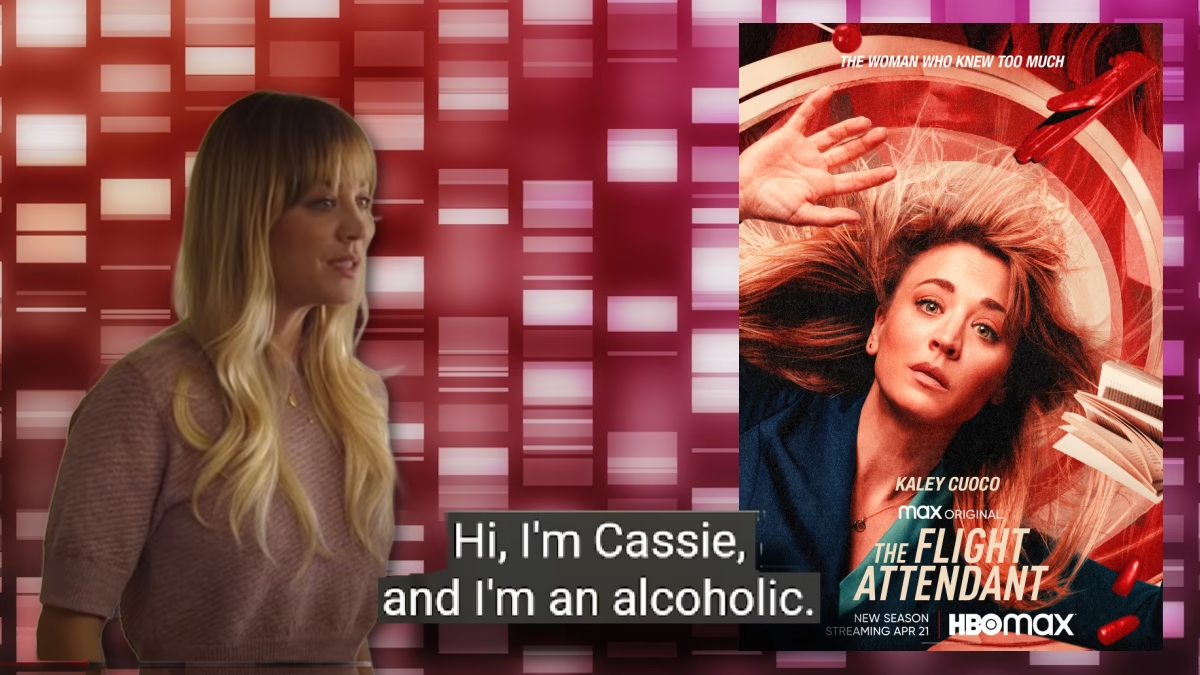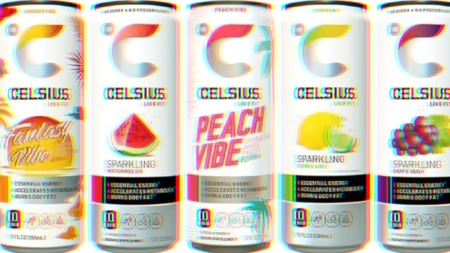
“Gratitude isn’t a journal entry — it’s a biological intervention.”
When “The Flight Attendant” first aired, I was transfixed. Watching Kaley Cuoco’s Cassie Bowden spiral through blackout-fueled chaos hit way too close to home. Here was a woman trying to outdrink her own nervous system — a brain that couldn’t regulate, couldn’t rest, couldn’t find calm without chemical help.
I recognized that story. I lived that story. That was me!
Now, after 28-plus years sober and deep in the world of functional DNA, I see it through a new lens: the one where biology and recovery finally shake hands.
The Genetic Plot Twist Nobody Talks About
Science tells us that 50–60% of addiction risk is genetic. But the new twist is that gratitude — yes, that overused, often misunderstood concept — can actually influence gene expression through epigenetics.
This means gratitude isn’t just an emotional exercise; it’s a form of genetic regulation. When you know which (DNA) variants you carry, you can tailor your gratitude practice like a prescription — precise, personal and profoundly effective.
The GABRA2 Factor: Why Cassie Can’t Calm Down
Cassie’s chaos points to a classic GABRA2 pattern — the gene that affects your brain’s GABA receptors, the body’s built-in “chill system.” When it’s underactive, anxiety spikes, and calm feels like a foreign language.
Alcohol, unfortunately, speaks that language fluently.
What research shows:
- GABRA2 variants show up in 51% of those with alcohol dependence
- They heighten anxiety and stress reactivity
- They run in families
- And they respond beautifully to mindfulness and gratitude practice. YES!
For years, my nightly “just one glass” wasn’t weakness; it was my GABA system begging for balance. Once I learned that, I stopped fighting myself and started working with my wiring.
Gratitude as GABA Medicine
Here’s where the science gets interesting: authentic gratitude activates the parasympathetic nervous system — your body’s natural calm. It raises GABA, lowers cortisol and literally re-patterns the anxious brain.
During my morning gratitude walks with my son, I can feel the shift: less edge, more presence. That’s not woo — that’s neurotransmitter regulation in motion. What are your morning walks like these days?
“Gratitude doesn’t just change your mind. It changes your biochemistry.”
The COMT Gene: When You Feel Everything All the Time
Cassie also wears the emotional armor of someone with the COMT “worrier” variant — the one that breaks down dopamine and stress hormones slowly. These people (me included) don’t just feel — they absorb.
COMT Cheat Sheet:
- Met/Met (Worrier): Feels deeply, stress-sensitive, detail-oriented
- Val/Val (Warrior): Thrives under pressure, risks burnout from intensity
- Val/Met (Balanced): A mix of both
Alcohol offers worriers temporary quiet — but it’s a counterfeit calm that depletes dopamine over time. Gratitude, on the other hand, provides the real reset.
Gratitude as COMT Therapy
When I work with COMT clients, we flip the narrative: Your emotional (sensitive) depth isn’t a flaw. It’s your superpower.
We use gratitude to reframe sensitivity into strength:
“I’m grateful for my sensitivity — it lets me connect deeply.”
“I’m grateful for my stress — it taught me resilience.”
“I’m grateful for my overthinking — it makes me thorough.”
This kind of gratitude isn’t performative — it’s neurochemical. Each reframed thought triggers a positive feedback loop in dopamine and serotonin production. Are you with me, here?
The Epigenetic Revolution: Gratitude Rewrites the Code
Consistent gratitude practice can literally alter gene expression:
- Activates genes tied to resilience and emotional regulation
- Suppresses inflammatory and addictive pathways
- Enhances neuroplasticity and neurotransmitter balance
You can’t change your DNA, but you can influence how it behaves. Gratitude is your hand on the dimmer switch.
Recovery Isn’t Rejection — It’s Redirection
Cassie’s arc reminds us that recovery isn’t about becoming someone new — it’s about finally understanding who you are.
Her sensitivity and chaos aren’t moral failings; they’re neurobiology waiting for compassion. When she learns awareness and presence, her chaos becomes creativity.
I’ve seen it in my own DNA story:
The same genes that made me vulnerable now make me effective. My anxiety became empathy. My overthinking became precision. My need for calm became my career in stress science. HA!
Twenty-eight years after my last drink, gratitude hasn’t just kept me sober — it’s helped me evolve.
“Your genes may write the first chapter of your story, but gratitude edits every one that follows.”
Lane Kennedy is a DNA Functional Nutritionist and mindfulness teacher who helps people move from stress and burnout to real recovery. She translates complex genetic science into simple, daily habits that restore calm and build long-term resilience.
Learn more at LaneKennedy.com
Did you love the show THE BEAR? Join The BEAR and Start Decoding Your DNA Today!

THE MINDFUL BINGE: The Flight Attendant Starring Kaley Cuoco, Who Plays A Raging Alcoholic In This Must-See Binge-Worthy Thriller (SEASON ONE)

THE MINDFUL BINGE: The Flight Attendant Season Two

SPIRITUAL SUBSTANCE at The Sober Curator is a monthly column by Lane Kennedy that explores the rich intersections of mindfulness, science, and spirituality. Each piece blends evidence-based practices with soulful reflection, offering tools to cultivate inner peace, self-awareness, and deeper connection. From meditation techniques to thought-provoking insights, Lane invites readers to expand their understanding and enrich their personal practice.
You’ve got mail from The Sober Curator

Resources Are Available
If you or someone you know is experiencing difficulties surrounding alcoholism, addiction, or mental illness, please reach out and ask for help. People everywhere can and want to help; you just have to know where to look. And continue to look until you find what works for you. Click here for a list of regional and national resources.






